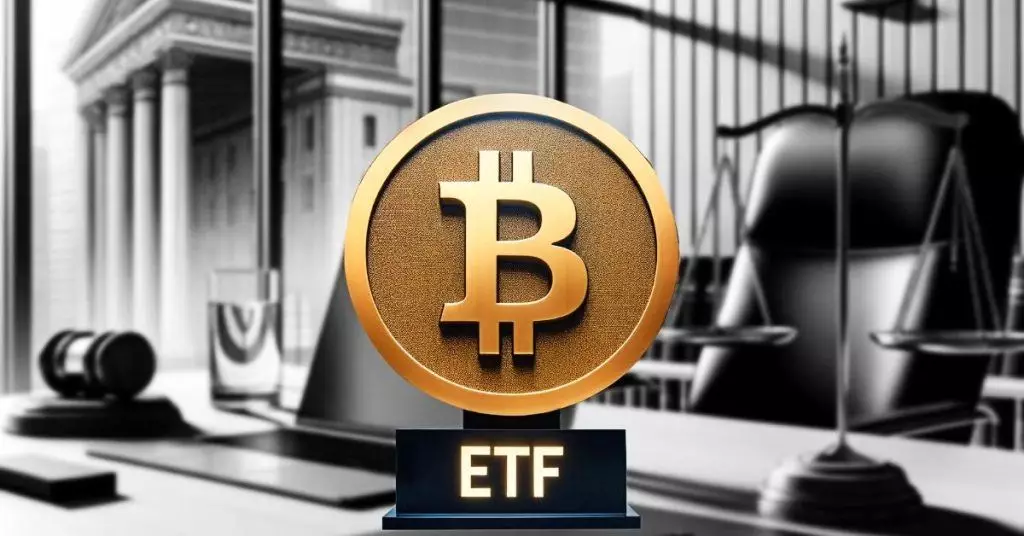The outflows from Grayscale’s Bitcoin Trust (GBTC) appear to be slowing down, indicating a shift in investor sentiment. This trend is reflected in the trading activity of Bitcoin ETFs, with the entire ETF cohort attracting significant trading volumes and rapid growth in assets under management. Although there was initial anxiety surrounding Grayscale’s Spot ETF, it seems to be subsiding as outflows from the GBTC dropped steadily over the week to just $44.2 million on Friday, marking the lowest point since the spot Bitcoin ETFs went live.
Grayscale’s GBTC has been a dominant player in the Bitcoin ETF space since its launch in 2013 as a Bitcoin trust available only in OTC markets. It grew in popularity over the years, becoming the go-to option for investors looking to enter the crypto industry. However, after a lengthy regulatory process, the SEC approved GBTC’s conversion into a Spot Bitcoin ETF. This move allowed Grayscale’s new Bitcoin ETF to go live on January 11, alongside nine other recently approved ETFs.
Following Grayscale’s conversion into an ETF, the company witnessed significant withdrawals from investors, totaling $5.55 billion by the end of January. Many analysts attribute these outflows to Grayscale’s high management fees of 1.5%. Despite the outflows from GBTC, other Bitcoin ETFs like BlackRock’s iShares Bitcoin Trust (IBIT) and Fidelity Wise Origin Bitcoin Fund (FBTC) have continued to attract new investments. IBIT currently holds over $6.64 billion worth of BTC, while FBTC has $4.73 billion in assets.
While the recent slowdown in outflows from GBTC is a positive sign for Grayscale and the broader ETF market, concerns remain regarding potential future outflows. The recent approval for bankrupt crypto lending firm Genesis to sell $1.3 billion worth of GBTC to repay its creditors has raised fears of further outflows. The liquidation of such a substantial amount of GBTC could have downward implications on the price of BTC, although some analysts remain optimistic.
Despite the uncertainties surrounding potential outflows from GBTC, there are contrasting views on the market impact of liquidation. While some investors are concerned about downward pressure on BTC prices, others believe that most funds will remain within the crypto ecosystem, mitigating the impact. At the time of writing, Bitcoin was trading at $51,300, with Grayscale’s GBTC holding $22.7 billion worth of assets under management. These dynamics in the Bitcoin ETF space highlight the evolving nature of the crypto market and the challenges faced by industry players.
The current state of Bitcoin ETFs, particularly the outflows from Grayscale’s GBTC, reflects a mix of optimism and caution among investors. While the recent slowdown in outflows is a positive development, the potential for further outflows and market uncertainties pose challenges for the industry. As the crypto market continues to evolve, it is essential for investors to conduct thorough research and exercise caution when navigating the complexities of Bitcoin ETFs.


Leave a Reply